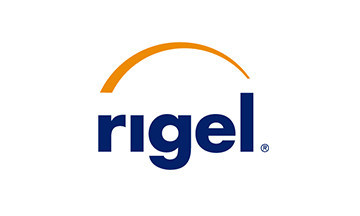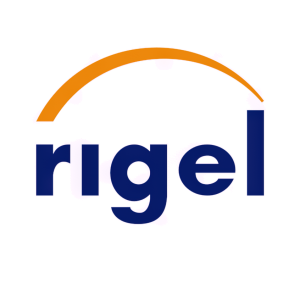Rigel Announces NIH/NHLBI-Sponsored Trial of Fostamatinib in Hospitalized COVID-19 Patients in Collaboration with Inova
Rigel Pharmaceuticals (Nasdaq: RIGL) announced the initiation of a Phase 2 trial for fostamatinib, an oral SYK inhibitor, targeting hospitalized COVID-19 patients. Sponsored by the National Institutes of Health, the randomized, double-blind study will involve approximately 60 patients. The primary aim is to evaluate the safety of fostamatinib, while secondary objectives will assess early efficacy and disease progression measures. Fostamatinib is currently approved for chronic immune thrombocytopenia and is being explored for its potential to mitigate severe immune responses in COVID-19.
- Initiation of Phase 2 clinical trial for fostamatinib in hospitalized COVID-19 patients.
- Collaboration with NIH enhances credibility and potential for effective treatment.
- Fostamatinib has FDA approval for chronic immune thrombocytopenia, indicating a proven safety profile.
- The study is in preliminary phases, and outcomes are uncertain.
- Risks associated with clinical trials that may affect long-term success.
Insights
Analyzing...
SOUTH SAN FRANCISCO, Calif., Sept. 17, 2020 /PRNewswire/ -- Rigel Pharmaceuticals, Inc. (Nasdaq: RIGL) today announced the start of a multicenter, Phase 2 trial to evaluate the safety of fostamatinib, its oral spleen tyrosine kinase (SYK) inhibitor, for the treatment of hospitalized COVID-19 patients. The study is sponsored by the National Heart, Lung, and Blood Institute (NHLBI), part of the National Institutes of Health (NIH), in collaboration with Inova® Health System. Fostamatinib, marketed in the U.S. as TAVALISSE® (fostamatinib disodium hexahydrate) tablets, is approved in the U.S. and Europe as a treatment for adult chronic immune thrombocytopenia (ITP).
"With the ongoing pandemic continuing to cause tens of thousands of new daily cases of COVID-19 across the U.S., there is a critical need to not only stop the spread of the virus, but to also develop new and effective therapies to treat the infected population, including those with severe and life-threatening disease," said Richard Childs, M.D., clinical director of the NHLBI. "As we work with the broader community to identify safe and effective therapeutic options for COVID-19 patients, we are hopeful that the investigation of fostamatinib will potentially aid in the fight against this pandemic."
The clinical trial is being conducted at the NIH Clinical Center in Bethesda, Maryland, the nation's largest hospital devoted entirely to clinical research, and Inova Fairfax Hospital.
"Working with Dr. Childs and his team at the NIH provides an excellent platform to further explore the potential of fostamatinib to treat and prevent conditions caused by an overactive immune system in COVID-19 patients," said Raul Rodriguez, Rigel's president and CEO. "COVID-19 infection can lead to dangerous and potentially life-threatening immune responses that can attack not only the lungs, but potentially other organs. Based on our understanding of SYK's role in the pathogenesis of the virus and fostamatinib's mechanism of action, we believe expanding our clinical effort into this second trial in COVID-19 related lung injuries is critical."
COVID-19 is the infectious disease caused by Severe Acute Respiratory Syndrome Coronavirus-2 (SARS-CoV-2). SARS-CoV-2 primarily infects the upper and lower respiratory tract and can lead to acute respiratory distress syndrome (ARDS). Additionally, some patients develop other organ dysfunction including myocardial injury, acute kidney injury, shock resulting in endothelial dysfunction and subsequently micro and macrovascular thrombosis.1 Much of the underlying pathology of SARS-CoV-2 is thought to be secondary to a hyperinflammatory immune response associated with increased risk of thrombosis.2
SYK is involved in the intracellular signaling pathways of many different immune cells. Therefore, SYK inhibition may improve outcomes in patients with COVID-19 via inhibition of key Fc gamma receptor (FcγR) and c-type lectin receptor (CLR) mediated drivers of pathology such as pro-inflammatory cytokine release by monocytes and macrophages, production of neutrophil extracellular traps (NETs) by neutrophils, and platelet aggregation.3,4,5 Furthermore, SYK inhibition in neutrophils and platelets may lead to decreased thromboinflammation, alleviating organ dysfunction in critically ill patients with COVID-19.
This is a randomized, double-blind, placebo-controlled trial to evaluate the safety of fostamatinib for the treatment of hospitalized COVID-19 patients. The study will randomly assign fostamatinib or matched placebo (1:1) to approximately 60 evaluable patients who are a 5 to 7 on the 8-point ordinal scale (requiring supplemental oxygen via nasal canula or non-invasive ventilation, requiring mechanical ventilation or extracorporeal membrane oxygenation). Treatment will be administered orally twice daily for 14 days. There will be a follow-up period to day 60. The primary objective of this study is to evaluate the safety of fostamatinib compared to placebo for the treatment of hospitalized COVID-19 patients. The secondary objective will be to assess the early efficacy and clinically relevant measures of disease progression.
Recently, researchers at The Broad Institute of the Massachusetts Institute of Technology (MIT) and Harvard led a screen focused on drug repurposing to identify U.S. Food and Drug Administration (FDA) approved compounds that reduce mucin-1 (MUC1) protein abundance. MUC1 is a biomarker used to predict the development of acute lung injury and ARDS, and it correlates with poor clinical outcomes. Of the 3,713 compounds that were screened, fostamatinib was the only compound identified that both decreased expression of MUC1 and is FDA approved.6 Additionally, a recent study led by the Amsterdam University Medical Center at the University of Amsterdam, found that anti-Spike IgG from serum of severely ill COVID-19 patients induces a hyperinflammatory response by human macrophages, a response that can be counteracted by SYK inhibition with fostamatinib. This study also found that anti-Spike IgG can break down pulmonary endothelial barriers and induce microvascular thrombosis.3 Fostamatinib is currently in a Phase 2 trial being conducted by Imperial College London to evaluate the efficacy of fostamatinib for the treatment of COVID-19 pneumonia.
About Rigel (www.rigel.com)
Rigel Pharmaceuticals, Inc. is a biotechnology company dedicated to discovering, developing and providing novel small molecule drugs that significantly improve the lives of patients with immune and hematologic disorders, cancer and rare diseases. Rigel's pioneering research focuses on signaling pathways that are critical to disease mechanisms. The company's first FDA approved product is TAVALISSE® (fostamatinib disodium hexahydrate) tablets, the only oral spleen tyrosine kinase (SYK) inhibitor, for the treatment of adult patients with chronic immune thrombocytopenia who have had an insufficient response to a previous treatment. The product has been approved by the European Commission for the treatment of chronic immune thrombocytopenia in adult patients who are refractory to other treatments and is marketed in Europe under the name TAVLESSE® (fostamatinib). Fostamatinib is also currently being studied in an investigator-sponsored trial conducted by Imperial College London for the treatment of COVID-19 pneumonia7.
Rigel's clinical programs include a Phase 3 study of fostamatinib in warm autoimmune hemolytic anemia (AIHA); a completed Phase 1 study of R8357, a proprietary molecule from its interleukin receptor associated kinase (IRAK) inhibitor program; and an ongoing Phase 1 study of R5527, a proprietary molecule from its receptor-interacting protein kinase (RIP) inhibitor program. In addition, Rigel has product candidates in clinical development with partners AstraZeneca, BerGenBio ASA, and Daiichi Sankyo.
Please see www.TAVALISSE.com for the full Prescribing Information.
1. Berlin DA, Gulick RM, Martinez FJ. Severe Covid-19. N Engl J Med 2020
2. Becker RC. COVID-19 Update: COVID-19 associated coagulopathy. Journal of Thrombosis and Thrombolysis May 15, 2020. DOI: https://doi.org/10.1007/s11239-020-02134-3
3. Hoepel W. et al. Anti-SARS-CoV-2 IgG from severely ill COVID-19 patients promotes macrophage hyper-inflammatory responses. bioRxiv July 13, 2020. DOI: https://doi.org/10.1101/2020.07.13.190140
4. Sung P-S and Hsieh S-L (2019) CLEC2 and CLEC5A: Pathogenic Host Factors in Acute Viral Infections. Front. Immunol. 10:2867. DOI: https://doi.org/10.3389/fimmu.2019.02867
5. Behnen M. Immobilized Immune Complexes Induce Neutrophil Extracellular Trap Release by Human Neutrophil Granulocytes via Fcγ RIIIB and Mac-1. The Journal of Immunology July 2014. DOI: https://doi.org/10.4049/jimmunol.1400478
6. Alimova M. et al. A High Content Screen for Mucin-1-Reducing Compounds Identifies Fostamatinib as a Candidate for Rapid Repurposing for Acute Lung Injury during the COVID-19 pandemic. bioRxiv June 30, 2020. DOI: https://doi.org/10.1101/2020.06.30.180380
7. The product for this use or indication is investigational and has not been proven safe or effective by any regulatory authority.
Forward Looking Statements
This release contains forward-looking statements relating to, among other things, Rigel's plans to support the NIH Phase 2 trial, the trial design, the potential clinical benefit of fostamatinib for the treatment of hospitalized COVID-19 patients and the role of SYK inhibition in potentially improving outcomes of critically ill COVID-19 patients, including by alleviating thromboinflammation. Any statements contained in this press release that are not statements of historical fact may be deemed to be forward-looking statements. Words such as "potential," "may," "aim," "believe," "expects" and similar expressions are intended to identify these forward-looking statements. These forward-looking statements are based on Rigel's current expectations and inherently involve significant risks and uncertainties. Actual results and the timing of events could differ materially from those anticipated in such forward looking statements as a result of these risks and uncertainties, which include, without limitation, risks and uncertainties associated with the commercialization and marketing of fostamatinib in the U.S. and Europe; risks that the FDA, European Medicines Agency (EMA) or other regulatory authorities may make adverse decisions regarding fostamatinib or any of Rigel's product candidates; risks that clinical trials may not be predictive of real-world results or of results in subsequent clinical trials; the availability of resources to develop and, if approved, commercialize fostamatinib or any other of Rigel's product candidates; the progress of our and our collaborators' product development programs, including clinical testing, and the timing of results thereof; our expectations with respect to regulatory submissions and approvals; our research and development expenses; protection of our intellectual property; market competition; as well as other risks detailed from time to time in Rigel's reports filed with the Securities and Exchange Commission, including its Quarterly Report on Form 10-Q for the quarter ended June 30, 2020. In addition, the ongoing COVID-19 pandemic may result in further delays in Rigel's studies and trials, or impact Rigel's sales and ability to obtain supply of fostamatinib. Rigel does not undertake any obligation to update forward-looking statements and expressly disclaims any obligation or undertaking to release publicly any updates or revisions to any forward-looking statements contained herein.
Rigel IR Contact: David Burke
Phone: 650.624.1232
Email: dburke@rigel.com
![]() View original content to download multimedia:http://www.prnewswire.com/news-releases/rigel-announces-nihnhlbi-sponsored-trial-of-fostamatinib-in-hospitalized-covid-19-patients-in-collaboration-with-inova-301132823.html
View original content to download multimedia:http://www.prnewswire.com/news-releases/rigel-announces-nihnhlbi-sponsored-trial-of-fostamatinib-in-hospitalized-covid-19-patients-in-collaboration-with-inova-301132823.html
SOURCE Rigel Pharmaceuticals, Inc.








